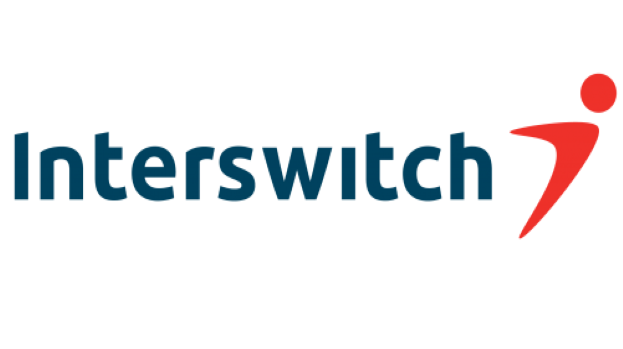E-Business
Five Steps to Evaluating a DDoS Managed Service Provider

The news that the Southern African Department of Labour was recently able to foil a distributed denial of service (DDoS) attack on one of its external facing servers in early September reminds us that businesses and governments must remain vigilant at all times
While this DDOS attack was unsuccessful, a 2016 attack in Liberia, West Africa took the entire country offline for a week, when a Mirai botnet variant known as Botnet 14 spent seven continuous days on the offensive, flooding the two companies that co-owned the fibre going into country with 600 Gbps flows that overwhelmed its infrastructure. https://threatpost.com/ddos-attacks-get-bigger-smarter-and-more-diverse/134028/
Bryan Hamman, territory manager for sub-Saharan Africa at NETSCOUT Arbor, which specialises in advanced distributed denial of service (DDoS) protection solutions, said, “We know that DDoS attackers will target anyone today, from SMEs that might have valuable data, to banks with sophisticated security systems, all the way to governments at the level of a sovereign nation. By using multiple compromised computer systems to attack a target and cause a denial of service for legitimate users, a flood of incoming information forces the target system to slow down or even crash. And so vigilance remains the eternal watchword.”
In this vein, NETSCOUT Arbor says the case for a managed DDoS protection and mitigation service is well established as partnering with a provider that can oversee your organisation’s security operations takes a critical IT management issue off your plate, boosts your staff resources, and gives you access to specialised DDoS expertise. But not all managed DDoS services are alike.
Hamman clarified, “When you are choosing your managed DDoS service provider, NETSCOUT Arbor outlines the following key areas to look out for: the flexibility to handle customised workflows; customer-focused reporting and intelligence; adequate network size; the experience of the provider’s IT team; and a best-practice hybrid solution.”
Flexibility to handle custom workflows: Your organisation may already have some operational processes and procedures in place for dealing with DDoS threats. A managed service provider should be able to adapt and align to you, rather than requiring you to change your processes. “You may wish to ask questions such as: Under what scenarios do you want the service provider to initiate mitigation action on its own, or seek your authorisation? Can the provider support different actions based on different alert types or event levels?” says Hamman.
Customer-focused reporting and intelligence: A good DDoS provider will deliver reports detailing the latest incidents and the actions taken in response to security events.
However, a DDoS provider that is prepared to take their service to the next level above this will take a more proactive, consultative approach, which leverages global threat intelligence as the basis for recommendations to improve your security posture. A managed service provider should also be able to supply executive-level reporting that enables you to demonstrate ROI and key metrics for the C-suite.
Size of network: NETSCOUT Arbor says DDoS attacks are growing in sheer size and rapidly approaching terabyte territory, due largely to amplification techniques and the emergence of Internet of Things (IoT) botnets. The capacity to absorb and disperse the largest known attacks is imperative. Equally important is a distributed infrastructure, with multiple locations that enables mitigation to take place as close to the source of attack as possible. This not only avoids “choke points” – it accelerates time-to-mitigation cycles.
While absolute network size is an important consideration, so too is the amount of capacity dedicated to DDoS mitigation. A dedicated provider is critical to mitigating massive attacks. It should be noted that managed service providers support multiple customers, and there is always the risk that several will be hit at once. It is not enough, therefore, to have capacity levels that are equal to or even twice the size of any potential attack. Rather, the network must be several orders of magnitude bigger than the largest known attacks. Ten terabytes of capacity is quickly becoming the standard that will define the modern, managed DDoS provider.
Experience of team: A good provider will be highly reliant on automation. Over and above this, your provider of choice needs to understand that foiling threat actors takes human intelligence – the ability to recognise and analyse a real attack, understand its origins and quickly determine its objectives. “Therefore,” says Hamman, “your provider of choice should have dedicated research teams with decades of experience studying, analysing and overseeing the successful mitigation of DDoS attack, as well as excellent security expertise from team members with diverse professional backgrounds and complementary skills.”
Best-practice hybrid solution: Increasingly, security experts agree that a hybrid solution, combining on-premise and cloud capabilities, is the best defence against DDoS attacks. The on-premise component can typically capture the vast majority of malicious traffic. If an attack threatens to exhaust the capacity of an on-premise appliance, the cloud capability can automatically activate. Today, on-premise defences can be virtualised. With a fully managed service, costs are offset by a reduction in staffing requirements. And you only pay for as much cloud capacity you consume.
“As we’ve reported previously, data from the NETSCOUT Arbor Worldwide Infrastructure Security Report (WISR) for 2018 showed that South Africa was within the top 10 of countries targeted by DDoS attacks for both the 2018 and 2017 WISR reports. DDoS defences simply cannot be emphasised enough,” concludes Hamman.
E-Business
AfDB, UNDP Launch $10Bn AI Initiative for Africa

The African Development Bank Group (AfDB) and the United Nations Development Programme (UNDP) have launched an ambitious $10 billion project to support the adoption of Artificial Intelligence (AI) across the continent.

The 10 Billion Initiative intends to accelerate ethical AI adoption and inclusive digital economic growth in Africa.
The initiative follows the Nairobi AI Forum, which took place earlier this month in Kenya and brought together governments, private sector leaders, development partners, and tech innovators to define pathways for impactful AI adoption.
According to the organisations, the strategy is a co-designed collaboration between the Bank Group, UNDP, and commercial partners that aims to raise up to $10 billion by 2035.
The resources will be used to create up to 40 million new jobs across the continent by 2035, through targeted investments that provide the groundwork for AI and accelerate widespread adoption in everything from entrepreneurship and regional data infrastructure to policy frameworks and skill development.
Nicholas Williams, AfDB Group ICT operations division manager, commented: “As a leading multilateral development institution, the bank is leveraging its comparative advantage to ensure Africa is not left behind in the AI era.
“The AI 10 Billion Initiative paves the way for expanded partnerships and sustained investments that will accelerate AI entrepreneurship, strengthen data and infrastructure ecosystems, and support inclusive growth across the continent.”
E-Business
Firm Identifies RenEngine Loader Distributed Through Pirated Games and Software

Kaspersky Threat Research has revealed its analysis of RenEngine, a malware loader that has recently gained public attention. Kaspersky identified RenEngine samples as early as March 2025, with its solutions already protecting users from the threat at that time.

Beyond the cracked games highlighted in recent reports, Kaspersky researchers discovered that attackers created dozens of websites distributing RenEngine through pirated software, including graphics editors like CorelDRAW. This expands the known attack surface beyond the gaming community to anyone seeking unlicensed software.
Kaspersky has recorded incidents in Russia, Brazil, Turkey, Spain and Germany, among other countries. The distribution pattern indicates opportunistic attacks rather than targeted operations.
When Kaspersky first identified RenEngine, the loader was delivering the Lumma stealer. Current attacks distribute ACR Stealer as the final payload, and Vidar stealer has also been observed in some infection chains.
The campaign exploits modified versions of games built on the Ren’Py visual novel engine. When users launch infected installers, a fake loading screen appears while malicious scripts execute in the background. The scripts include sandbox detection capabilities and decrypt a payload that initiates a multi-stage infection chain using HijackLoader, a modular malware delivery tool.
“This threat extends beyond pirated games — attackers are using the same technique to distribute malware through cracked productivity software, which broadens the potential victim pool significantly,” said Pavel Sinenko, lead malware analyst at Kaspersky Threat Research. “Game archive formats vary by engine and title. If an engine doesn’t check the integrity of its resources, attackers can embed malware that executes the moment you click play.”
Kaspersky solutions detect RenEngine as Trojan.Python.Agent.nb and HEUR:Trojan.Python.Agent.gen. HijackLoader is detected as Trojan.Win32.Penguish and Trojan.Win32.DllHijacker.
E-Business
Interswitch Partners Abia to Digitise Public Hospitals

Interswitch, a technology company, through its health-tech subsidiary, Interswitch eClat, has taken a major step in advancing Nigeria’s public-sector health digitisation agenda following the conclusion of a high-level stakeholders’ engagement with the Abia State Government.

The engagement took place ahead of the phased deployment of eClinic, Interswitch eClat’s Electronic Medical Records platform, across public health facilities in the state, the firm stated in a statement on Friday.
The engagement, convened by the Abia State Ministry of Health in collaboration with Interswitch and held at the State’s Ministry of Health in Umuahia, brought together senior government officials, health administrators, Interswitch representatives, and key ecosystem stakeholders to align on the scope, implementation framework, and expected outcomes of the proposed eClinic deployment.
The initiative reflects a shared commitment to leveraging digital infrastructure to improve healthcare delivery, operational efficiency, and patient outcomes across Abia State’s public health system.
Discussions focused on deploying Interswitch’s eClinic solution in alignment with Abia State’s broader healthcare reform agenda under the current administration, particularly the transition from fragmented, paper-based systems to secure, interoperable digital platforms across public health facilities.
The proposed kick-off phase will span six public health facilities, including three primary healthcare centres, two secondary facilities, and one tertiary hospital, creating an end-to-end digital care pathway that strengthens patient referrals, supports continuity of care, and enables data-driven decision-making across all levels of service delivery.
The EMR solution is built to reduce patient waiting times, strengthen referral processes, and ensure the secure handling of both clinical and administrative data, supported by a hybrid infrastructure that enables local hosting with cloud-based backup.
Speaking at the engagement, Prof Enoch Uche, the Commissioner for Health, Abia State, described the initiative as a major milestone in the state’s healthcare transformation journey and highlighted the importance of private-sector collaboration in achieving sustainable impact.
“The Ministry of Health in Abia State is excited about the digitisation of health facilities, starting with Interswitch’s eClinic pilot phase involving three primary, two secondary, and one tertiary health centre. This initiative will enhance efficiency, accountability, and patient care by linking records across different levels of care.
“Global evidence shows that digital health improves access, reduces the cost of care, and maximises human resources while personalising services for our people. This partnership with Interswitch represents a key deliverable for this administration and aligns with the Governor’s vision for a modern, technology-driven health system,” he said.
During technical sessions led by Babatunde Fadeyi, Vice President, Health Ecosystem (Public Sector), Interswitch, stakeholders were taken through the core capabilities of Interswitch’s eClinic platform.
These include secure patient record management, ICD-11–compliant diagnosis coding, controlled data update protocols, and integrated billing and reporting tools designed to improve efficiency and accountability across health facilities.
Stakeholders were also briefed on the platform’s governance framework, risk mitigation approach, and phased implementation roadmap. Commenting on the engagement, Fadeyi reaffirmed Interswitch’s commitment to delivering measurable impact through technology-enabled healthcare systems.
“Abia State has demonstrated a strong commitment to innovation and system reform. The alignment of the state’s healthcare priorities with national health digitisation objectives creates a solid foundation for meaningful progress. Interswitch’s eClinic platform is designed to improve hospital operations by automating workflows, securing patient data, and providing healthcare managers with reliable insights to guide decisions.
“Beyond improving patient experience, it supports stronger revenue tracking, operational efficiency, and accountability. Our focus is to ensure the success of this pilot phase and deliver tangible improvements across productivity, service delivery, and patient satisfaction,” he said.
Also speaking at the engagement, Dr Ifeyinwa Blossom Uma-Kalu, the Permanent Secretary of the Ministry of Health, Abia State, highlighted the operational and clinical value of Interswitch’s eClinic initiative, particularly in strengthening referrals, improving revenue management, and expanding access to specialist care.
“This digitisation initiative will help us track our finances and internally generated revenue more accurately while reducing leakages. More importantly, it strengthens our referral system by allowing patient records to move seamlessly from primary to secondary and tertiary care.
“With a digital framework, healthcare workers in remote communities can access specialist support through telemedicine, helping to save lives and improve outcomes. This is a critical tool in our efforts to reduce maternal and infant mortality, and we are eager to see the outcomes of Interswitch’s eClinic,” she noted.
The engagement also addressed key success factors for the project, including power stability, user training, change management, and inter-agency collaboration, with both parties emphasising sustainability and scalability as the project progresses.

 Telecom3 days ago
Telecom3 days agoCyber Immunity Emerges as Shield for Nigerians Amid Rising Scams

 E-Financial3 days ago
E-Financial3 days ago$214Bn Missing, Institutions Silent: Is Accountability Dead in Nigeria?

 E-Business3 days ago
E-Business3 days agoInterswitch Partners Abia to Digitise Public Hospitals

 General News3 days ago
General News3 days agoNITDA, Abia Partner on Enterprise Architecture Reform

 News2 days ago
News2 days agoNITDA Urges Stronger State Partnerships as Key to Digital Economy Goals @ South-South Stakeholders Forum

 E-Business3 days ago
E-Business3 days agoWIEG 2026 Summit Shifts to April 22-23 for Maximum Impact

 Telecom2 days ago
Telecom2 days agoGSMA Launches Innovation Fund to Accelerate Green Transition Through Mobile Technology

 E-Business2 days ago
E-Business2 days agoFirm Identifies RenEngine Loader Distributed Through Pirated Games and Software














